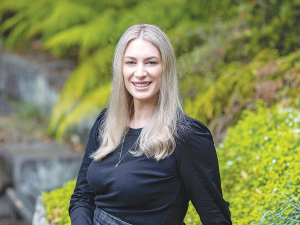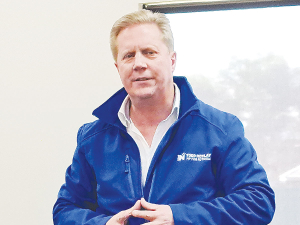That's the advice from Kylie Filbee-Cronin, a director in business advisory services and agriculture specialist at Baker Tilly Staples Rodway Taranaki.
With elevated farm input prices and interest rates, farmers are fighting to keep their businesses profitable.
Filbee-Cronin believes that those who fix prices now can go into next year's budget with real certainty about their costs - something it's been tricky to do in today's economic environment. She also sees some good milk price offers coming up.
"Hedge small amounts at regular intervals, so farmers don't have all their milk in one basket is the way to go," she told Dairy News.
However, she also warns farmers to be aware of the costs of entering into different kinds of hedging contracts - as there are many options available.
Weighing up the use of Fixed Milk Price or other hedging tools depends on each farmer's situation
"Those with minimal debt can handle the volatility of the industry quite well, so for them it may not be worth the cost. But for those with high levels of debt, they need to protect their bottom line as much as possible, so some form of hedging is a great way to minimise their risk," she says.
"The most important question I ask is whether that hedged price is going to cover their costs - meaning is it at or above their 'break-even milk price'. If not, it would be rare to lock in such a price.
"However, if the market was indicating prices dropping even further then sometimes hedging at that point might be the right decision. Farmers should also consider the costs involved of hedging their milk price and the timing of those costs. Do they have sufficient cashflows to fund any upfront costs? Tax should also be considered, as in some products you will be paying tax on the income earlier than if you had not hedged."
All major processors, including Fonterra and Open Country Dairy, offer their own versions of fixed milk prices to their farmer suppliers each season, but the amounts, prices, and timing of payments differ. Alternatively, there are milk hedging products accessible on the NZX and via Rabobank.
Filbee-Cronin points out that milk processors offer as much as they have been able to sell at a point in time on the milk futures market, so this is dependent on the buyers and whether they are wanting to lock in their costs at the current market rates or not.
"In short, this is quite variable."
The uptake in recent years among farmers has been "fairly significant". Filbee-Cronin points out that there is a significant rise in the use of both Fixed Milk Price and hedging tools on the NZX market, and not just at the corporate farming level.
However, there certainly are still many farmers in a comfortable enough position to "ride the waves" of milk price.
"We are seeing banks responding favourably to clients who use milk hedging tools, as it provides them with a level of comfort in the client's ability to service their debt, so this is likely a driver the rising use of milk hedging tools."
However, there are potential downsides to hedging milk prices.
Filbee-Cronin says this depends highly on the type of hedging product that farmers use.
She urges farmers to refer to a guide on their company website which shows the pros and cons of different products and to speak to their professional advisor.
"Downsides can include being stuck with a fixed price, or if they don't want to be stuck with this and want flexibility (such as a put option), it comes at a higher cost per kg of milksolis to use."
Factors At Play
Kylie Filbee-Cronin, Baker Tilly Staples Rodway Taranaki, says farmers looking at hedging prices next season will have to consider several factors.
She says farmers will be looking at how much of the current season product milk companies have already sold so that they can decide on whether the Global Dairy Trade (GDT) auction result is going to have a significant impact on the current season forecast or next season.
"They'll also be watching the Reserve Bank's OCR announcement to understand whether there is any likely reduction coming on their interest costs.
"They may even be looking at who is taking part in the GDT auctions, as there is plenty of speculation around when other foreign markets may increase their purchasing volume to help drive the prices to more favourable positions."
Kylie Filbee-Cronin compares milk price hedging to locking interest rates on debt.
"For similar reasons as those not wanting to lock in interest rates on all their debt at a single point in time when the market is so volatile and unknown. You don't want to risk locking in all your main revenue stream at a price that may turn out to be unfavourable. However, not hedging any could leave you open to significant risk," she says.
















